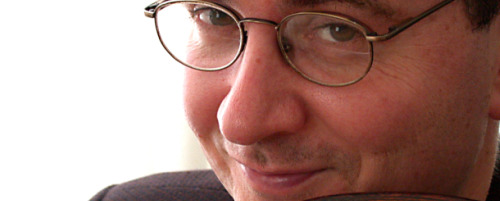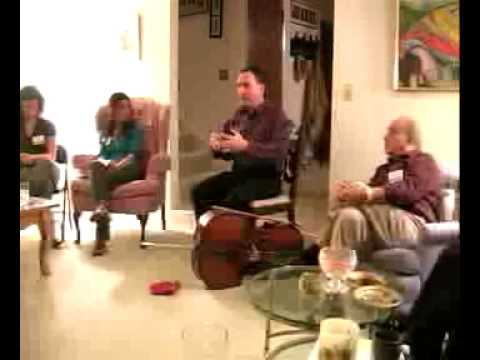Having performed Jewish and Arab music across the US, encouraging the two opposing groups to open up to each other, two Israeli-born musicians bring their show back home.

Jewish-Israeli Udi Bar-David is a cellist with the Philadelphia Orchestra. Arab-Israeli Hanna Khoury is a violinist and leader of the Arabesque Music Ensemble. The two men, both of whom grew up in Israel but now live in the United States, are joining forces for a series of December concerts in the land of their birth.
“We got together for a Peace Child event in Philadelphia, and since then we have been touring the United States performing Arab and Jewish music,” says Bar-David, the 50-year-old president and artistic director of Intercultural Journeys, a non-profit dedicated to cross-cultural understanding through the arts. “This will be our first time performing together in the Middle East,” he tells ISRAEL21c.
For the past six years, the multi-ethnic ensemble of world-class performers has offered performances, master classes and lectures at a variety of American venues. But it was a visit 10 years ago to Neve Shalom/Wahat al Salam (Oasis of Peace), a mixed Arab-Jewish village in central Israel that planted the seeds for the organization. Today, Bar-David intends to focus his efforts increasingly on his Arab Jewish Musical Dialogue program promoting peaceful rapprochement.
“I feel we have arrived at the point where we finally succeeded in convincing decision-makers that a cultural exchange of the highest level is an important tool in bringing Arabs and Jews together,” Bar-David tells ISRAEL21c. “Our list of partners is increasing daily and I see much hope in our activities and involvement in furthering peace efforts.”
Promoting rapprochement through music
Together with a Puerto Rican drummer, Bar-David and Khoury are to play Arab and Jewish music and “Vivaldi with a Middle Eastern touch” in three concerts arranged by the Vatican in Rome on December 20.
Subsequent performances are scheduled for Bethlehem on December 21 and at the Jerusalem Theater on the 22nd. On December 23, the group is to visit a Moslem college, Al Qasemi Academy, near the Israeli city of Hadera, and then perform at Neve Shalom/Wahat al Salam. The following day should be devoted to two informal concerts, one in East Jerusalem and one in West Jerusalem.
The latter programs are designed to be brief, to allow for dialogue following the performances, Bar-David explains. He acknowledges the possibility that those who choose to attend such events may already be involved in Arab-Jewish coexistence efforts.
“There is always a question of whether you are preaching to the choir,” he says. “But we do not wish for those who come to be the ones already on board. We would like those who have not been exposed to these ideas to come, and I hope we can change minds. Our ability to project and create trust is really capable of creating miracles.”
Learning to listen
Bar-David says his personal transformation “from having prejudices to being completely open-minded” is characterized by a heightened ability to listen to – and never demonize – the other side. “I don’t always agree with one side or the other, but I’ve learned to go as far as understanding another point of view. I just pray that everybody responsible for dialogue in the Middle East can do the same.”
Music, he believes, is a powerful channel for meaningful communication.
“Most political dialogues in the Middle East have begun from a poor starting point,” he says. “Our presentations, which explore multicultural commonalities through music, enable people to listen to each other and then take the natural step forward of discussing issues of a difficult political nature.”
Bar-David says he’s witnessed the success of this approach among other ethnic groups at Intercultural Journeys performances. “We see that there is a very productive way to talk to each other where you’re almost guaranteed to have solutions.”














